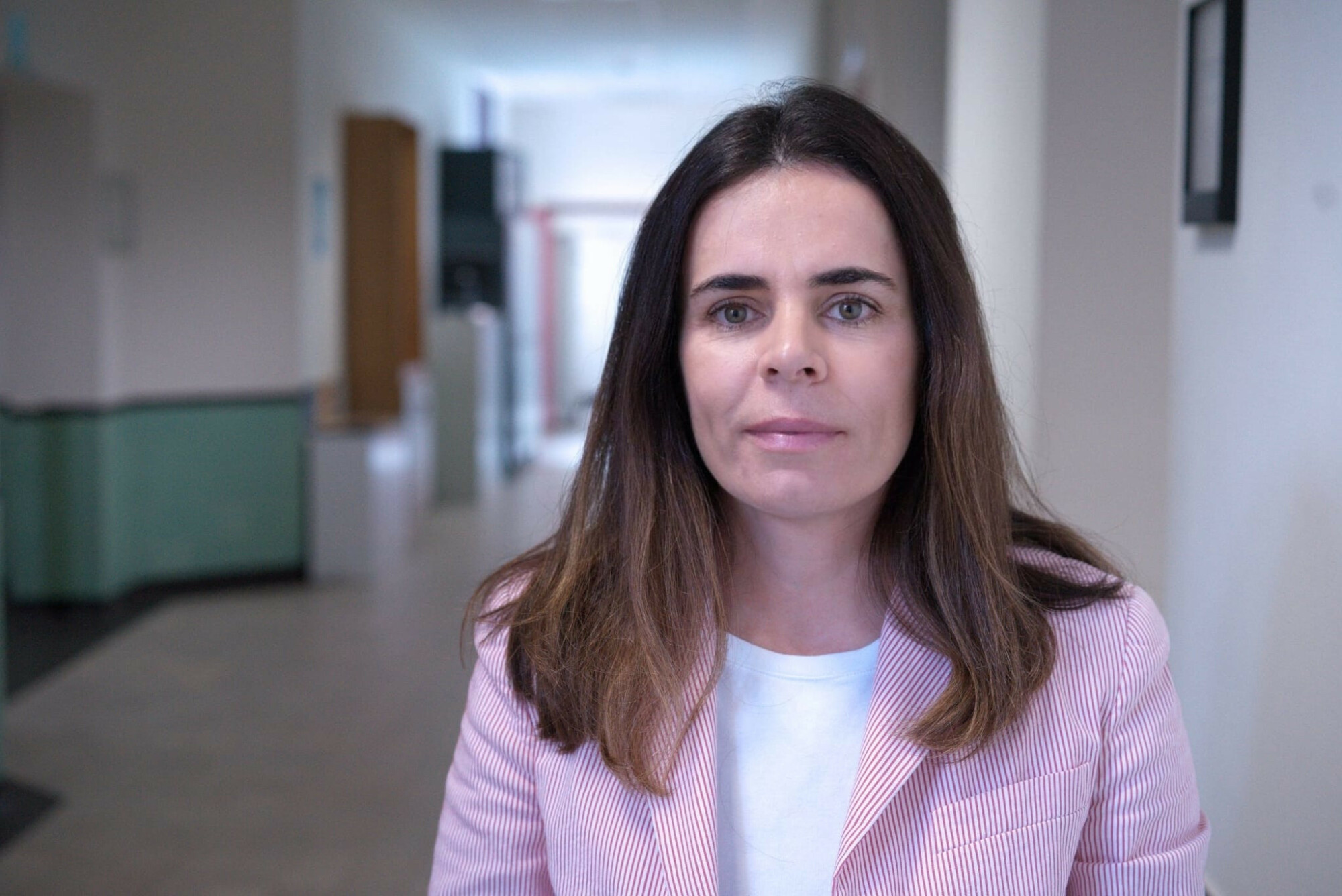"I want to find out why mosquitoes are such efficient vectors of malaria, a disease so deadly to humans"

How did you become a scientist? What sparked your interest?
MARIA LUÍSA I fell in love with biology as a child as my dad, an agronomical engineer, instilled in me a love for plants. I especially cherished autumn, because it allowed me to collect various colorful and intriguing leaves to study at home under a large magnifying glass. Additionally, I was fortunate to have excellent teachers at school who taught environmental sciences – such great teachers and mentors have played pivotal roles in my life.
Naturally, I pursued a major in biology at university. During my studies, I spent a year in Italy, and later another year conducting research in Mauritania for my thesis. At the age of 19, I embarked on a field trip to a malaria-endemic region in West Africa. This area was teeming with mosquitoes, and many people were severely ill. It was during this trip that my interest in malaria transmission was ignited, not only in the disease and the parasite but above all, in the vector. Mosquitoes, as it turns out, are the deadliest animals on the planet.
Did you work on malaria right away?
MARIA LUÍSA No, I got a great opportunity in San Francisco, USA, to work on cancer research and anti-cancer compounds at a pharmaceutical company. It was very exciting to work on drug discovery. The pharma sector is fast-paced, I learned a ton on goal-oriented research and met the best colleagues. Then I moved to the UK to continue research at the Institute of Cancer Research and University College London. I planned to have a career in cancer research, but malaria has always remained in the back of my mind and I decided to pursue a PhD degree in it, at Nova University Lisbon and Imperial College London. Since then I have been faithful to malaria (smiles). After obtaining my degree, I pursued a postdoc at Johns Hopkins University, USA, where I was promoted to Faculty Research Associate. I returned to Europe and took a position as Assistant Professor at the London School of Hygiene and Tropical Medicine, UK, where I stayed for 2 years.
Why did you choose ITM?
MARIA LUÍSA During my interactions with ITM’s Department of Biomedical Sciences, the Department showed a keen interest in my research. My research lines are complementary to what ITM and the biomedical colleagues have been working on, so it seemed a perfect fit. I started at ITM in May 2023 as Associate Professor, heading the Unit of Experimental Immunology.
What will you be working on at ITM?
MARIA LUÍSA My research focuses on malaria transmission by Anopheles mosquitoes, vector/pathogen interactions and mosquito innate immunity. Simply put: why are mosquitoes such efficient vectors of a disease that is so deadly to humans? The classical malaria control methods are often failing because the parasite has developed a strong resistance to antimalarial drugs, the mosquitoes adapt to bednets, and they have become highly resistant to insecticides. In other words: we need to find new ways to combat this devastating disease.
Instead of population suppression, my long-term approach is population replacement. This involves replacing the wild populations with mosquitoes that have been engineered to be resistant to pathogen infection and transmission.
Maria Luísa Simões
Maria Luísa Simões was born and raised in Lisbon, Portugal. Before coming to Belgium, she has lived in Portugal, Italy, the UK and the USA. She did her PhD thesis research at Nova University Lisbon, Portugal, and Imperial College London, UK (2014). Afterwards, she pursued a postdoc at the Johns Hopkins University in Baltimore, MA, USA, being promoted to Faculty Research Associate. She then became an Assistant Professor at the London School of Hygiene and Tropical Medicine in the UK.
As of May 2023, Maria Luísa is leading the Unit of Experimental Immunology at ITM.
Would you like to stay up to date on Maria Luísa's activities and pursuits?
Follow her on LinkedIn
Explore her ITM research profile and Google Scholar profile

Will you be developing a new technique instead? Every now and then we can also read about genetically modified mosquitoes in the press.
MARIA LUÍSA The overall aim of my research is to identify key genes and proteins, with a focus on mosquito immunity genes, that are determinant for malaria development in the vector. This will greatly inform genetic technologies for malaria vector control. This specific line of research is relatively novel. Instead of population suppression, my long-term approach is population replacement. This involves replacing the wild populations with mosquitoes that have been engineered to be resistant to pathogen infection and transmission. Essentially, these transgenic mosquitoes would carry less malaria.
You surely need a very special laboratory for such work.
MARIA LUÍSA Indeed, we require a robust, large, biosafe laboratory for vector biology and transmission studies, where we can set up so-called “infection systems.” Research in my lab involves experiments with mouse malaria infection models, as well as human infection systems. Achieving robust and reproducible malaria infection in a laboratory setting is a great challenge, so me and my team have exciting times ahead! (smiles)
Spread the word! Share this story on









